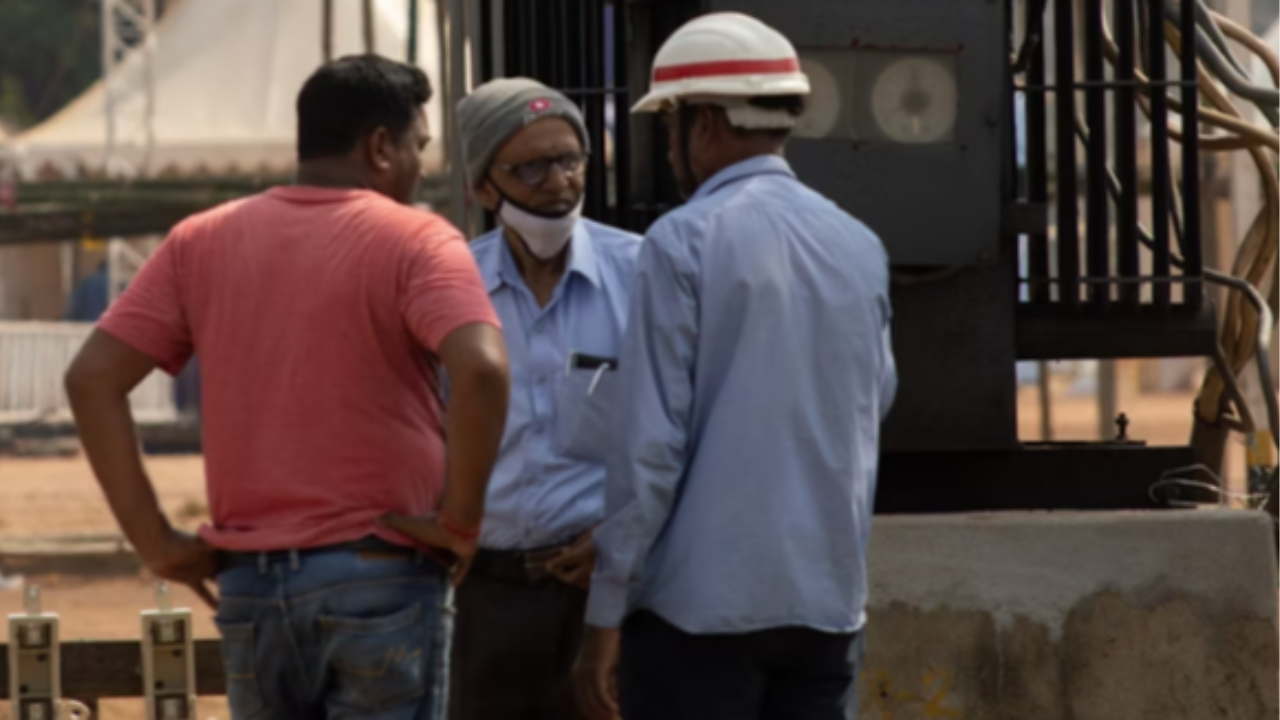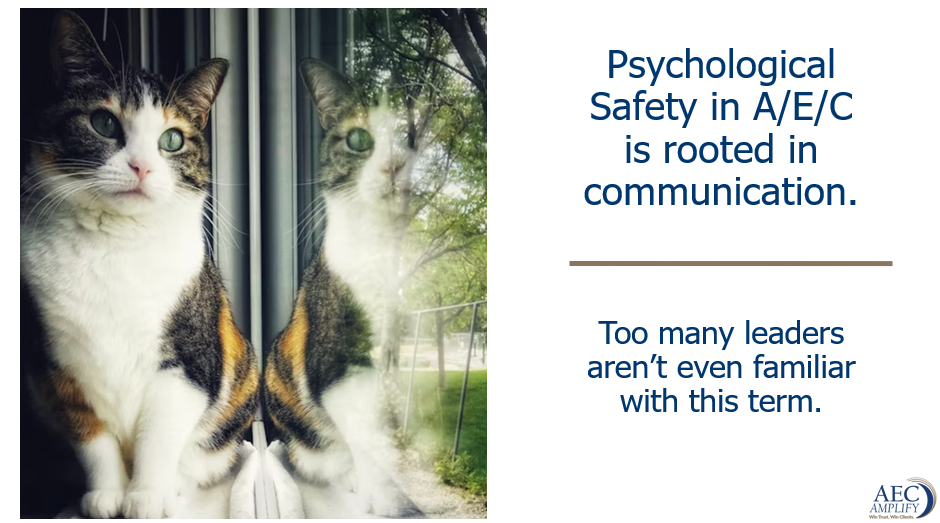Susan Young's
Amplify Blog
Data Centers are Booming, But Seller-Doer Meetings Don't Need More Data

It’s no secret that data center construction is booming.
It’s mostly fueled by AI and our demand for more data, faster speeds, and more answers.
But here’s the irony I see every week in A/E/C business development.
Seller-doer interviews aren’t lost because teams lack data.
Firms lose bids because decision-makers are overwhelmed with too many numbers.
Clients already have plenty of data from proposals.
Here’s the truth: Stakeholders are deciding if they trust who is in the room.
Successful interviews aren’t driven by slide decks—they’re driven by human connection.
• Clear, confident storytelling
• Thoughtful small talk that builds rapport
• Being present, personable, and intuitive
• Reading the room and responding—not rambling
Artificial Intelligence may be transforming how projects are designed and built.
But people still hire people.
This human side of communication is exactly why I created Top Tier Communicator.
It's where A/E/C’s emerging leaders develop essential sk...
Leaning into Leadership in 2026

The best project leaders don’t bark directives or lean on authority.
They use coaching as a core leadership tool—creating clarity, not confusion. 🎯
Combining coaching and leadership improves handoffs, documentation, and multi-generational teams communication.
Imagine your PMs, supers, and estimators sparking curiousity with open-ended questions.
Engagement uncovers blind spots and helps close feedback loops.
It also bolsters morale and impacts the talent pool. 📈
Strong, empathetic leaders draw ideas out of their teams.
They avoid unnecessary directives, invite perspectives, and make people feel valued.
🚩AI may streamline tasks, but it can’t fix confidence and unclear communication.
To develop stronger communicators in 2026, Top Tier Communicator training is the place to begin.
Wrap up 2025 with intention so your staff kicks off the new year ahead of the curve. Drop me a message here and we'll talk.
Why Sharing Clean Data Is Essential in A/E/C

Sharing clean data and communicating effectively comes down to hard-wired brain science.
You may have noticed that technically skilled folks in A/E/C are all about visuals, from blueprints to data visualization.
The key to improving interpersonal communication is to weave visual language into your speaking and writing.
For example, visual communicators may say:
➡️I get the picture.
➡️Let's look at this from a new perspective.
➡️We can view the data on the app.
You'll form deeper connections, reduce miscommunication, and build trust when you understand the way others process language. (There are two additional communication preferences, or modalities.)
Knowing someone else's preferred modality transforms relationships — and profits.
Imagine how much easier it is when you can apply this in meetings and on job sites.
AI Is Only As Smart As Your Communication

Clarity is a beautiful thing.
Especially when tech staff are thinking through RFIs, field reports, and meeting agendas that cost A/E/C firms productivity and profits.
Yes, Artificial Intelligence can simplify complex data.
Still, AI tools only bring value when humans provide clear input and prompts.
➡️When prompts are vague or confusing, the info you get back will miss the mark.
The result?
Misunderstandings, cost overruns, and lost credibility.
Clear thinking = Clear Prompts
➡️Our Top Tier Communicator on-demand and live training programs give teams the tools to strengthen clarity, communication, and AI prompts.⬅️
Each of the 3 programs are under $1,000.
Individuals and firms can access today's tools to bridge communication gaps and deliver successful projects.
The High Cost of Dysfunctional Teams

Communication tip:
Teamwork is your competitive advantage.
Here's the truth: A lack of trust amongst A/E/C teams brings dysfunction.
Messy interactions and communication breakdowns lead to misunderstandings, cost overruns, reworks, low morale, and labor shortages.
Successful leaders are willing to quickly and honestly address chaos to diffuse conflicts and keep projects on track.
How do you manage conflicts and dysfunctional teams?
Reach out if your team needs support.
Why Curiosity Wins More Pursuits Than Technology

Drones and AI are reshaping the A/E/C industry.
But they don’t win pursuits—people do.
What consistently sets your firm apart from others?
Curiosity and storytelling.
These skills build trust, spark connection, and make clients want to work with you.
Technical expertise matters—but only after you’ve won the bid. 🎯
To capture more pursuits, you need to connect first, then talk tech.
I’ve been teaching this at SMPS conferences, industry events, and in private trainings.
It's a topic that can not be overlooked any longer.
Skilled business development leaders and marketers use curiosity and storytelling to strengthen proposals, interviews, and client relationships.
The 1 Safety Term Many in A/E/C Are Missing

Yes, physical safety and mental health must always be top priorities in our industry.
There's a different kind of safety that firms often overlook: Psychological safety.
It's an essential form of communication.
Psychological safety means that staff feel comfortable and safe in expressing their emotions, using their voices, and sharing concerns — without judgment or repercussions.
➡️It directly impacts emotional well-being, talent retention, performance, and job dissatisfaction.
When leaders in my training programs are unsure of this practice, I worry.
Are your emerging leaders and executives using psychological safety practices to support staff?

Miscommunication: The Hidden Drain on Project Margins

A/E/C projects don’t typically lose money because of technical mistakes.
Projects lose money because of miscommunication.
You see it every day:
👉A missed client cue.
👉A poorly led meeting.
👉An unclear email that delays project handovers and brings cost overruns.
Leaders often underestimate the cost of these misunderstandings.
The frustrating part is that most miscommunication in our industry is avoidable. 🎯
The blunders above chip away at trust, delay schedules, and shrink profit margins.
📈In today’s competitive market, communication isn’t a “soft skill.”
It’s a revenue skill.
Is your team helping to protect profits?
Why Speaking Up Is a Strategic Advantage

Years ago, when I was in high school, I lost my voice for a few days.
I suddenly had laryngitis.
Couldn't make a sound.
It was beyond frustrating.
After college, I became a radio news reporter and anchor.
My voice was my job. I had a degree in communication.
But even then, I didn't fully believe my opinion or voice mattered. 😮
I second-guessed my worth.
I stayed quiet when I had something to say. Sound familiar?
I see the same pattern in 95% of the A/E/C professionals in my coaching and training programs.
People who are technically capable but hesitate to speak up in client-facing meetings or networking events.
Many in our industry shy away from making small talk and interacting with others.
It's about having more confidence.
Keeping your "nose in your phone" keeps you silent in real life.
💰The reluctance to use your voice costs your firm millions in lost bids, referrals, and opportunities.💰
A/E/C professionals don't lack ideas; they doubt their value.
They second-guess themselves.
When Projects Derail, Communication is Often the Culprit

Nearly 75 percent of construction delays are due to poor communication and collaboration among teams.
The research comes from Procore, a software company serving the A/E/C industry.
That's a tough number to digest.
😮Materials, weather, and budgets aren't always to blame when projects go off the rails.
It ultimately comes down to effective communication and team coordination.
It's easy to assume breakdowns only happen at the top.
But the chain is only as strong as its weakest communicator.
That includes younger project managers, superintendents, and estimators throughout the industry.
✅They have impressive technical skills.
Yet, their leadership voices are still developing.
Emerging leaders often hesitate to ask for clarification, share bad news, or speak up in meetings.
Then, we see ripple effects, such as:
🚩Wrong assumptions
🚩Missed deadlines
🚩Frustration with crews and clients
Project difficulties aren't just a "people problem."
Communication and collaboration directl...


